The Grapevine Art Salon
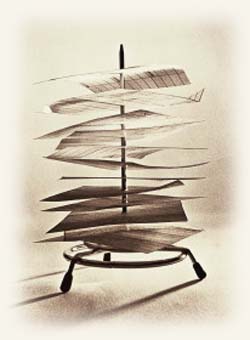
Miscellany: A Gallery for Related Materials
The Gossip Column
In the Q & A addendum to Jimmy Carter's historical novel The Hornet's Nest he says in answer to the question about writers who have influenced him that without claiming to emulate them, he would say William Faulkner and Patrick O'Brian.
Jamie Foxx paid high tribute to his grandmother Estelle Marie Talley in his Academy Awards acceptance speech for Best Actor in Ray. He described how she taught him: "She told me stand up straight, put your shoulders back, act like you got some sense." When he needed it, "She would whup me, and she could get an Oscar for the way she whupped me because she was great at it." While that was going on, "She would talk to me and tell me why she whipped me ... 'I want you to be a Southern gentleman.' " He said his grandmother often visited him in his dreams, and that he couldn't wait to get home for, on this night, they had a lot to talk about.
AP writer Margie Mason (2/28/05) reports from Simeulue Island, Indonesia about the recent Tsunami that islanders "remembered their grandparents' warnings and fled to higher ground in fear of giant waves known locally as 'semong'." Stories passed down over generations about a disaster in l907 had taught them what might happen. As a result of their flight by foot and on or in "bicycles and motorbikes and wheelbarrows," only seven of the island's seventy-five thousand people died.
(http://story.news.yaahoo.com/Oral History helps island survive tsunami)
In an article "Begone, Granny: Boomers want hipper monikers" (3/16/2005, E1 & 9) AJC writer Gayle White offers a range of names claimed by contemporary grandparents, such as Bubbie, Oma, Deedee, Gam, Nee Nee, Goomie, Dandy, and Goody. Granny is definitely out. A generation that includes grandparents Billy Crystal, Harrison Ford, Tina Turner, Sallie Field, and Goldie Hawn "want young-sounding, informal titles" according to Alan Zullo, who with his wife Kathryn wrote A Boomer's Guide to Grandparenting. The article quotes Jane Murphy, counselor and founder with her husband Marc Jasmine of grandboomers.com, as calling for a differentiation of names, given the increase in number of grandparents because of "co-mingled families and increased longevity."
Some cultures have that differentiation already built in, as in the example given of the Danish tradition that "assigns a grandparent's name that indicates not only the gender of the grandparent but also the relationship of that grandparent to the child's parent. For example, Mormor is the mother's mother and Morfar is the mother's father. Similarly we have Farmor and Farfar for the father's parents."
In India as well, the naming is specific: Ravi Kumar's Indian grandmother, the subject of his article in this Grapevine, was known to her grandson as Dadi-Ji (she was his father's mother), whereas his mother's mother was Nani-Ji. His father's father would be called Dada Ji or Baba Ji and his mother's father Nana Ji.
Book Review
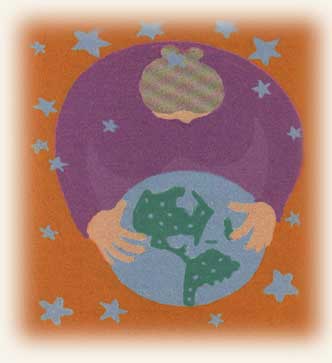
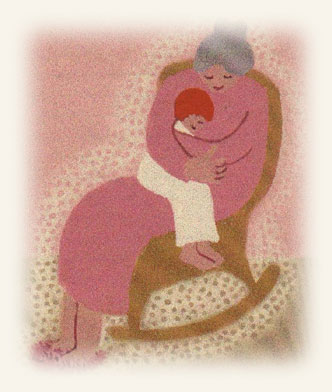
Finding Grandmama God and Talking Things Over with Her by Mary Feagan (1992).
In this delightful book of poems and illustrations, Mary Feagan undergoes a self-healing adventure composed of dialogues with the timeless feminine presence that she imagines as Grandmama God.
The journey involves sloughing off her attachments to "Old Judge God" and finding Him more willing to transmute than she might have expected. Free of the distant image that had daunted her spirit, she uncovers image after image of another powerful presence up close and ready to receive her attentions.
Grandmama God urges her to slow down, be still and quiet, to rock and question and wait, but she never has to wait long before seeing the enlivening pleasures, among many others, in hearthfire, hot apple cider, her cat Gracie, the humming of the refrigerator, and Mozart.
Grandmama God is not pious or sentimental: she encourages larking adventures and does not avoid talking about sex.
She takes a high-spirited girl/woman, devoted to work and disappointed in love, and teaches her to break the habits of panic so that she can love herself and feel in herself the life force that lets her bloom anew into a more fully realized person.
One of my fovorite poem sequences involves shopping with Grandmama God, where the woman learns how not to shop frantically, as a distraction from her authentic needs, and instead to indulge her love of beauty:
"Only get what purely delights you, She whispered."
And again, about a necklace, "Don't think twice. Just buy it."
Strange behavior for a god? Not if God is in the details, as we hear God is.
Mary Feagan was a nun for 11 years, until she was 29. She says, "When I was about 50, after two divorces and many confusing relationships with men, one more ruined romance brought me to my knees and to my unfinished business with God. I found I mostly needed a Mother God, and in gently mothering myself, I felt the presence of Grandmama God."
Mary is a member of Rosemary Daniell's Zona Rosa writing group.
Review by Barbara Knott
Art Gallery
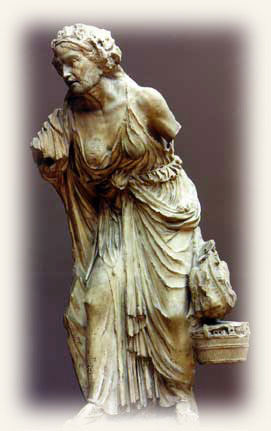
2nd Century BCE
Metropolitan Museum of Art New York
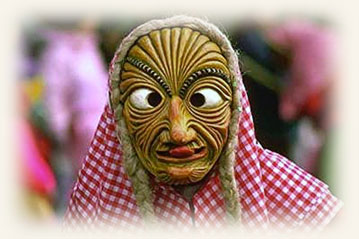
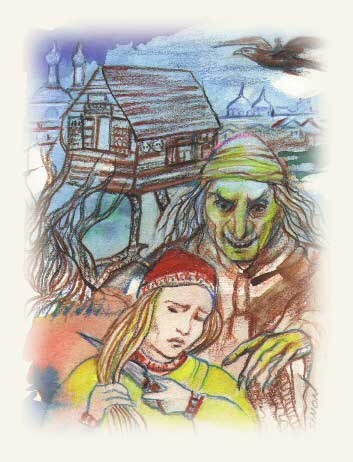
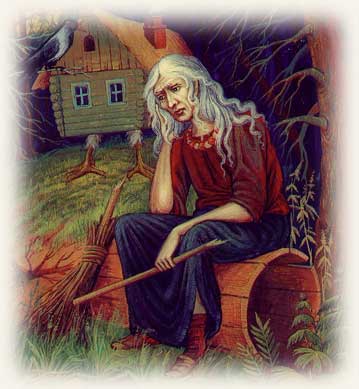
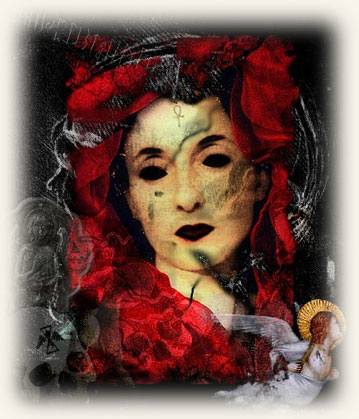


Granddaughters of Della Waddell Davis/McJunkin/Motes
Daughters of Beatrice McJunkin Jones/Fricks
Copyright ©2005 Barbara Knott · All Rights Reserved
Contact the Webmaster